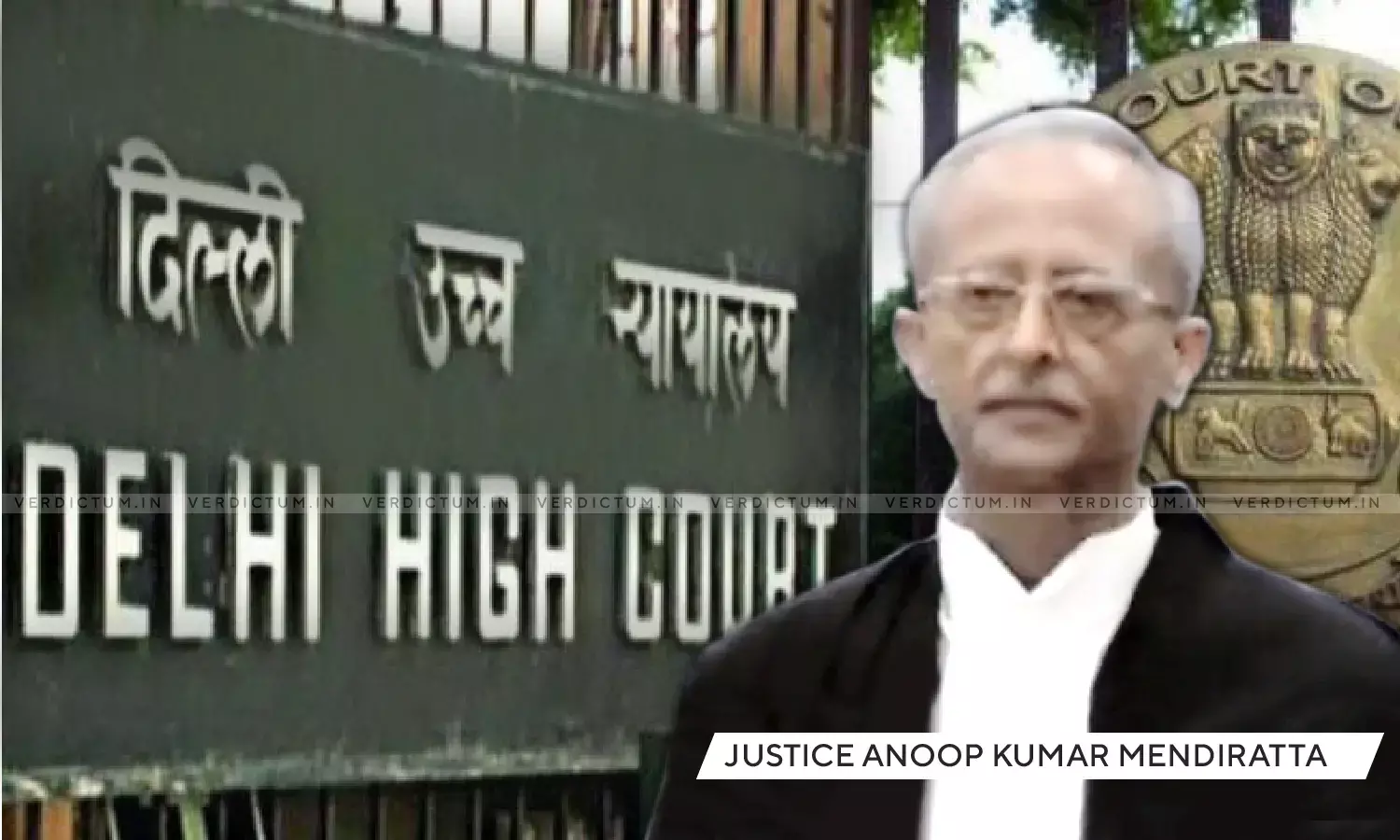Domestic Violence Act Is Applicable To Each Woman Irrespective Of Religious Affiliation Or Social Background: Delhi HC

In a recent ruling, the Delhi High Court affirmed the broad applicability of the Protection of Women from Domestic Violence Act, 2005, emphasizing its role as a vital instrument of social justice accessible to all women, regardless of their religious or social background.
The Bench of Justice Anoop Kumar Mendiratta underscored that the statute was specifically enacted to safeguard the rights of individuals subjected to domestic violence within familial relationships.
"Protection of Women from Domestic Violence Act, 2005 is a measure of social justice applicable to each woman irrespective of religious affiliation or social background. The same was enacted to safeguard the rights of the victims of ‘domestic violence’ in ‘domestic relationship’, the Bench said.
The Court made the observation in response to a plea filed by a husband and his relatives challenging a trial court's order to reinstate a domestic violence complaint lodged by the wife.
Initially, the Magisterial Court had dismissed the wife's complaint due to her non-appearance. Although her request for the case's restoration was denied by the Sessions Court, the Appellate Court later overturned this decision, citing insufficient grounds for dismissal based solely on the wife's absence on one occasion.
By an Order dated March 5, 2024, the Appellate Court had observed, "The absence of the respondent/wife has been explained and there were no sufficient grounds before the learned Trial Court to dismiss the petition on the basis of non-appearance on a single date. Considering the facts and circumstances, learned Appellate Court directed to restore the D.V. petition, subject to payment of cost of Rs. 10,000/- by the respondent to Appellants."
The Petitioner argued that non-appearance of the wife before the Trial Court was intentional in order to harass them. The Counsel also submitted that the wife was contesting other litigations between the same parties and sufficient grounds have not been shown before the Appellate Court for restoration of the proceedings.
However, the Court rejected this argument, affirming the Appellate Court's order and expressing satisfaction with the wife's explanation for her absence. Highlighting the importance of procedural fairness in facilitating justice, the Court emphasized that legal procedures should serve to support and enhance justice rather than obstruct it.
"There is no blemish in the order passed by the learned Appellate Court and for the cogent reasons, learned ASJ was duly satisfied with the explanation extended for non-appearance of respondent/counsel. It may be impressed upon that procedure is the handmaid of justice and is to come to the aid of justice rather than defeating it," the Court said.
Consequently, the Court ordered, "Considering the facts and circumstances of the case, no grounds for interference in the impugned order are made out, since sufficient grounds have been shown by the respondent for restoration of proceedings." Accordingly, the Court dismissed the Petition.
Cause Title: Gulshan Kumar & Anr. v. Nidhi Kashyap [CRL.M.C. 2740/2024]
Click here to read/download the Order

